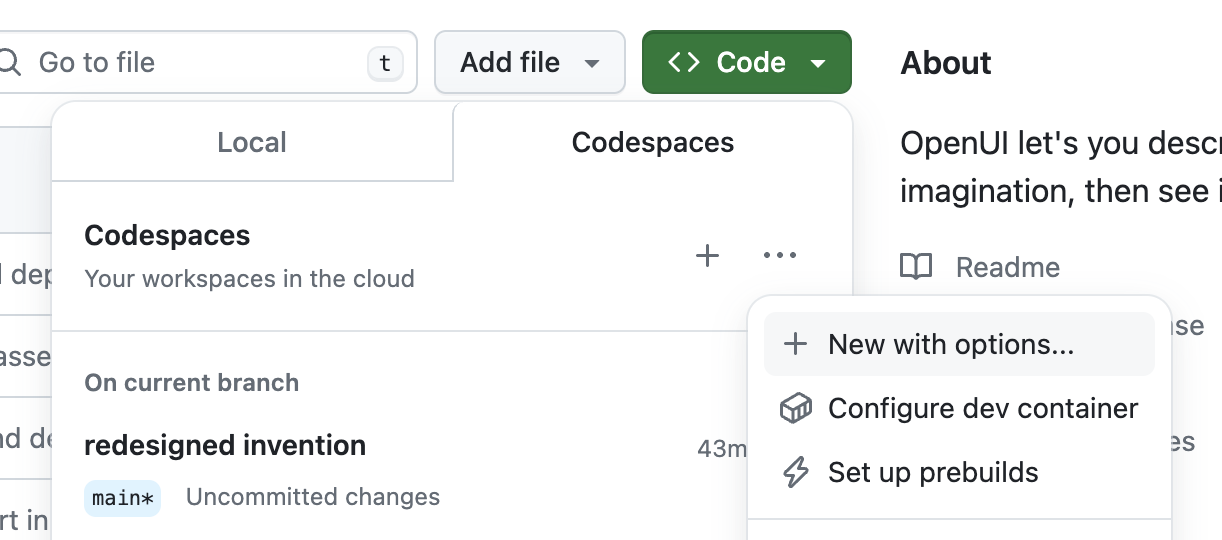Building UI components can be a slog. OpenUI aims to make the process fun, fast, and flexible. It's also a tool we're using at W&B to test and prototype our next generation tooling for building powerful applications on top of LLM's.
DISCLAIMER: under development
EldoraAI let's you describe UI using your imagination, then see it rendered live. You can ask for changes and convert HTML to React, Svelte, Web Components, etc. It's like v0 but open source.
EldoraAI supports OpenAI, Groq, and any model LiteLLM supports such as Gemini or Anthropic (Claude). The following environment variables are optional, but need to be set in your environment for alternative models to work:
- OpenAI
OPENAI_API_KEY - Groq
GROQ_API_KEY - Gemini
GEMINI_API_KEY - Anthropic
ANTHROPIC_API_KEY - Cohere
COHERE_API_KEY - Mistral
MISTRAL_API_KEY - OpenAI Compatible
OPENAI_COMPATIBLE_ENDPOINTandOPENAI_COMPATIBLE_API_KEY
Assuming you have git and uv installed:
git clone https://github.com/karthikmudunuri/eldoraai
cd openui/backend
uv sync --frozen --extra litellm
source .venv/bin/activate
# Set API keys for any LLM's you want to use
export OPENAI_API_KEY=xxx
python -m openuiChoose more options when creating a Codespace, then select New with options.... Select the US West region if you want a really fast boot time. You'll also want to configure your OPENAI_API_KEY secret or just set it to xxx if you want to try Ollama (you'll want at least 16GB of Ram).
Once inside the code space you can run the server in one terminal: python -m openui --dev. Then in a new terminal:
cd /workspaces/eldoraai/frontend
npm run devThis should open another service on port 5173, that's the service you'll want to visit. All changes to both the frontend and backend will automatically be reloaded and reflected in your browser.

